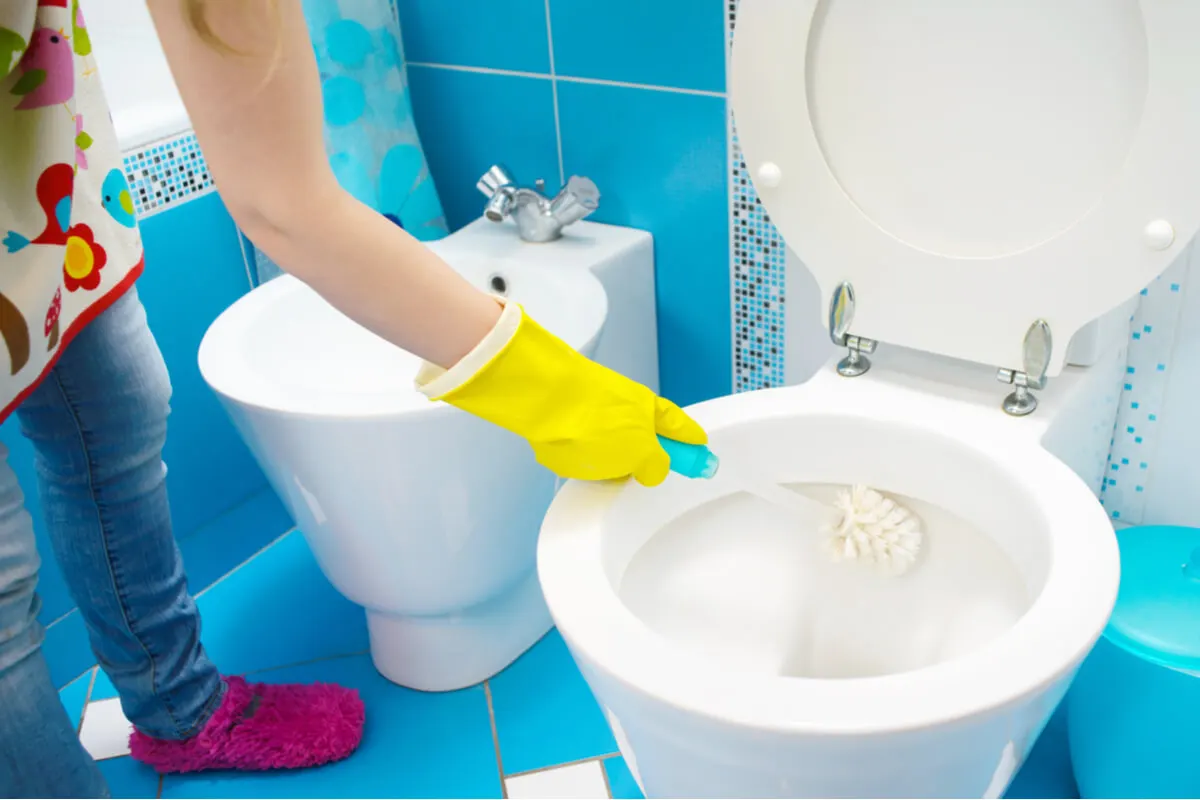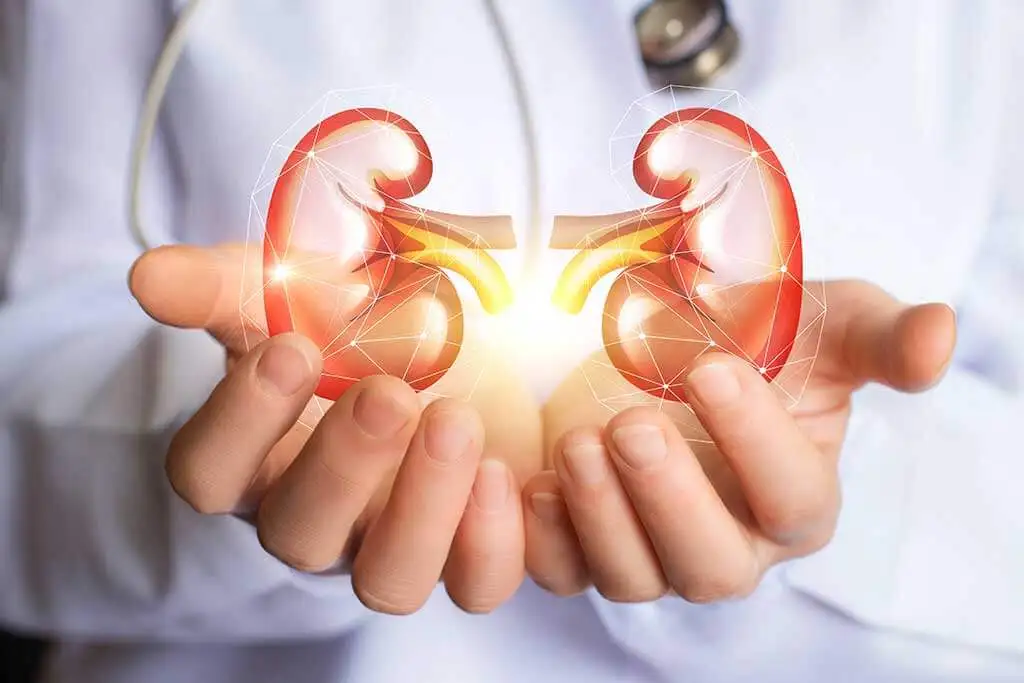Causes of Foamy Urine and When to Seek Help

Foamy urine can occur occasionally, and, if it does, there’s nothing to worry about. However, if it occurs frequently, it may indicate a health problem.
These bodily wastes are often overlooked, either because they’re rejected or because they aren’t considered important. The truth is that they often provide valuable clues about a person’s state of health.
The most important thing to take into account is the frequency with which the foam appears in the urine. If it occurs very often, it’s advisable to consult a doctor, especially if it’s accompanied by a strange odor or some kind of associated discomfort.
Foamy urine
Let us begin by saying that, in principle, foam in the urine is completely normal. Most commonly it occurs because urination can be quite forceful due to a full bladder.
There are also other reasons that we’ll see later. However, if this happens very often, it could be a sign of a kidney problem, diabetes or sexually transmitted diseases.
In any case, the most important thing is not to self-diagnose. First of all, discuss it with your doctor, do the appropriate tests and then they’ll draw their conclusions.
Causes of foamy urine
Foamy urine can have many different causes. Some of them are unimportant, while others could be relevant pathologies. Let’s take a look at the main reasons.
Pressure when urinating
This is the most common cause of occasional foamy urine. It usually occurs because a person holds back the urge to urinate for a long time, and then expels the liquid is expelled with great force.
One way to check this is to wait a moment before flushing the toilet. If the foam disappears, this is most likely the cause.
.It is not advisable to hold urine for a long time.
Chemical reaction
Some cleaning products used in toilets react to the presence of urine, forming foam. One way to check if this is the cause of the phenomenon is to urinate in a clean container to contrast.

Semen in urine
The presence of semen in urine also gives rise to foaming. It occurs when small amounts enter the male urethra, sometimes due to retrograde ejaculation and sometimes because the prostate is inflamed. However, these cases are very rare.
Dehydration
Dehydration is another likely cause of foamy urine. This occurs when you don’t drink enough water during the day or do intense physical exercise without drinking adequate amounts of water.
It’s usual for the urine to also look very cloudy and dark in color. It’s important to remember that the best hydrator is water and not milkshakes or soft and sugary drinks.
Proteinuria
Proteinuria is the presence of protein in the urine. It’s common after intense physical exercise. It may also be due to excessive intake of protein supplements.
However, it could be a sign of untreated high blood pressure or diabetes. Diabetic nephropathy is a very common complication of type 1 and type 2 diabetes, leading to a failure of the kidneys to fully perform their function. In these cases, early treatment is essential to prevent the problem from progressing.
Find out more: 8 Types of Urine That May Say Something Important About Your Health
Urinary tract infection
Urinary tract infection occurs when bacteria manage to colonize the tract. This is usually the result of careless hygiene.
Foamy urine is one of the signs, but this is often accompanied by burning during urination, more frequent urination and pain in the lower abdomen.
Read more: 7 Ways to Reduce Protein in Urine Naturally
Other kidney problems
Other serious kidney problems can be to blame if you notice foamy urine. Stones in these organs, as well as kidney failure, cause the symptom. Therefore, if the foam appears very frequently, a medical consultation is imperative.

When to consult a doctor in case of foam in the urine?
If the foam in the urine only appears from time to time, there’s nothing to worry about. You may just want to check your urination or hydration habits.
However, if the foamy urine appears very often, the right thing to do is to see a doctor. The causes can be many and several of them are pathologies that require diagnosis and approach as soon as possible.
The consultation is more urgent if, in addition to foamy urine, there’s pain or burning during urination or other additional symptoms. In the case of diabetics, this abnormality requires intensified screening protocols for complications.
Many people think that any kidney problem is solved by drinking large quantities of water. While this clearly helps, the smartest thing to do is to put the situation into the hands of a specialist.
Foam in the urine is something to pay attention to. It may not be the most pleasant thing to do, but checking your urine should become a habit. This simple exercise is an excellent control measure.
All cited sources were thoroughly reviewed by our team to ensure their quality, reliability, currency, and validity. The bibliography of this article was considered reliable and of academic or scientific accuracy.
- Centro para el control y prevención de enfermedades. (17 de abril de 2024). Información básica sobre las infecciones urinarias. https://www.cdc.gov/uti/es/about/informacion-basica-sobre-las-infecciones-urinarias.html?CDC_AAref_Val=https://www.cdc.gov/antibiotic-use/sp/uti.html
- Drożdżal, D., Lechowicz, K., Szostak,B., Rosik, J., Kotfis,K., Machoy-Mokrzyńska, A., Białecka, M., Ciechanowski, K., Gawrońska-Szklarz, B. (2021). Kidney damage from nonsteroidal anti-inflammatory drugs—Myth or truth? Review of selected literature. Pharmacology Research and Perspectives, 9(4). https://bpspubs.onlinelibrary.wiley.com/doi/10.1002/prp2.817
- Haider, M., & Aslam, A. (4 de septiembre de 2023). Proteinuria. StatPearls. https://www.ncbi.nlm.nih.gov/books/NBK564390/
- Khitan, Z., Glassock. R. (2019) Foamy Urine. Clinical Journal of the American Society of Nephrology, 14(11), 1664–1666. https://www.ncbi.nlm.nih.gov/pmc/articles/PMC6832055/
- National Kidney Foundation. (27 de octubre de 2022). What Your Urine Says About Your Kidney Health. https://www.kidney.org/newsletter/what-your-urine-says-about-your-kidney-health
This text is provided for informational purposes only and does not replace consultation with a professional. If in doubt, consult your specialist.








